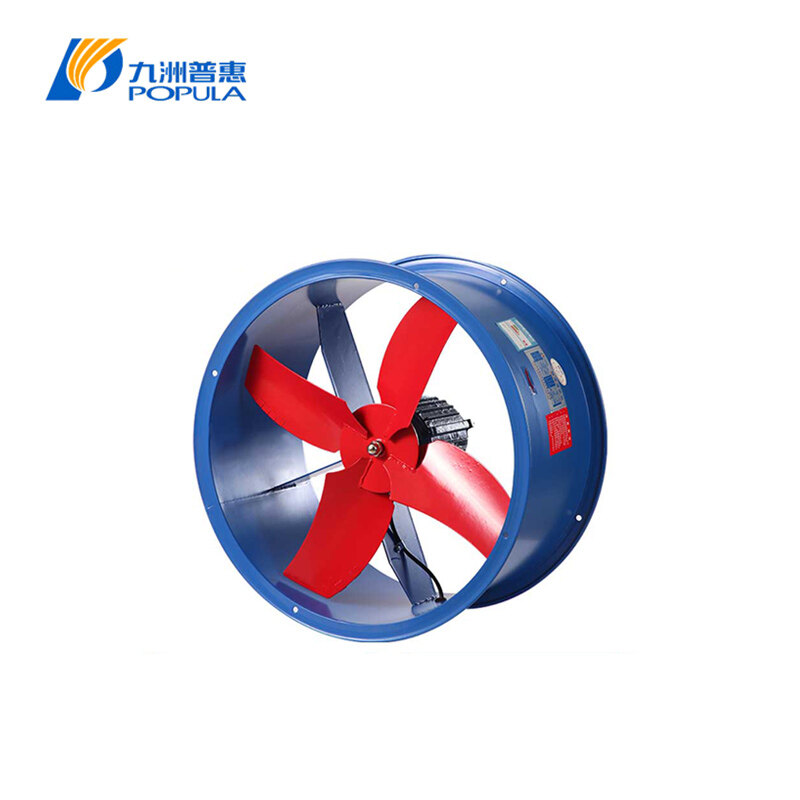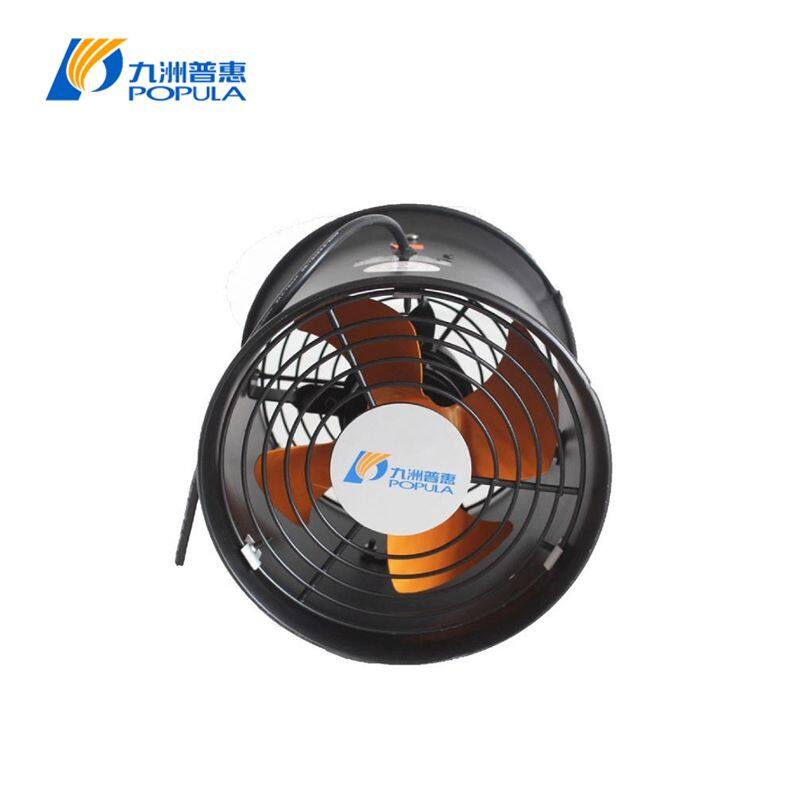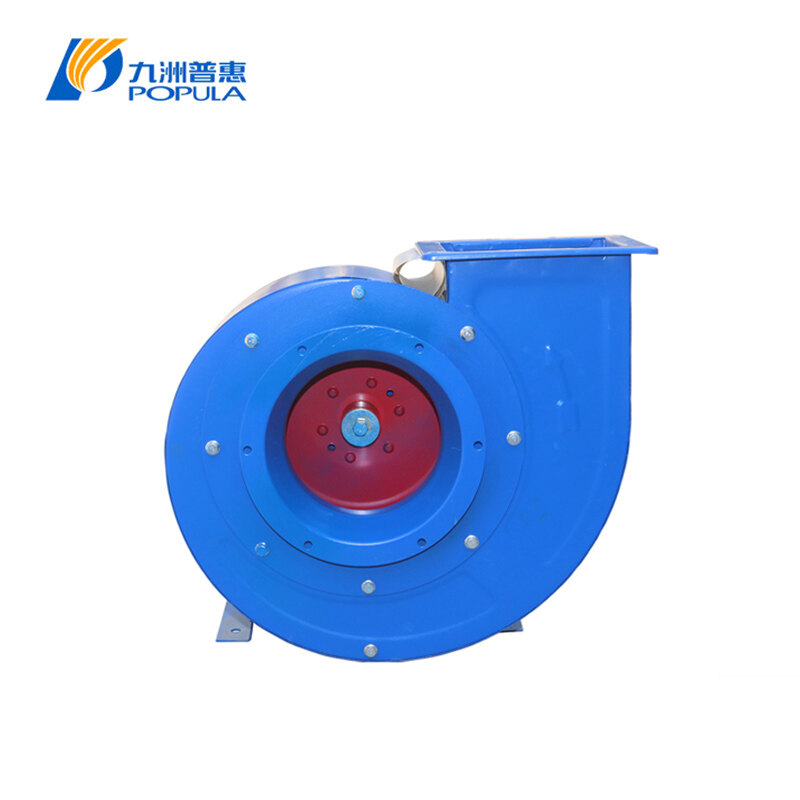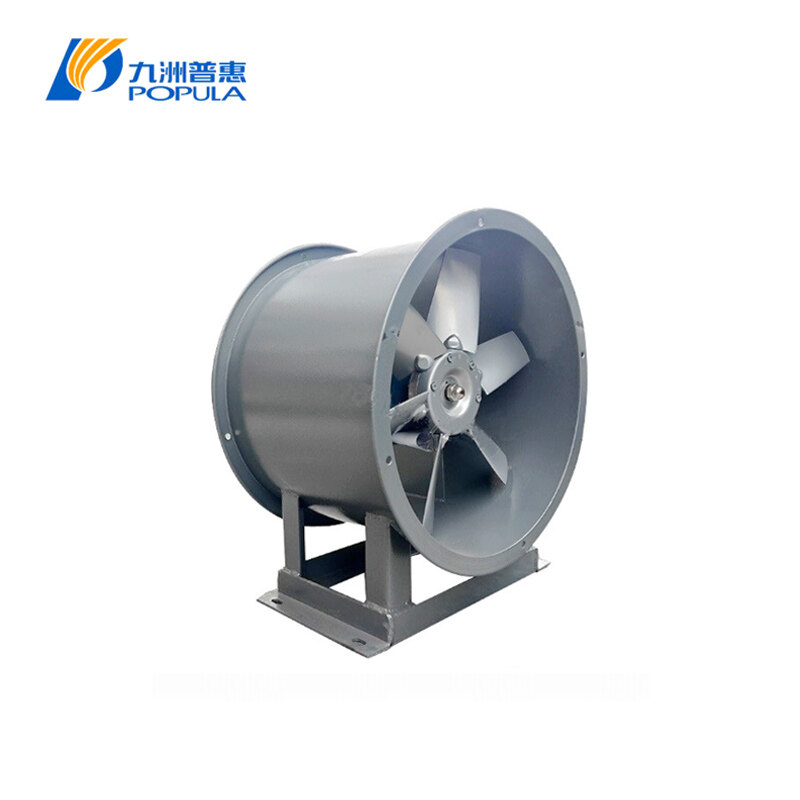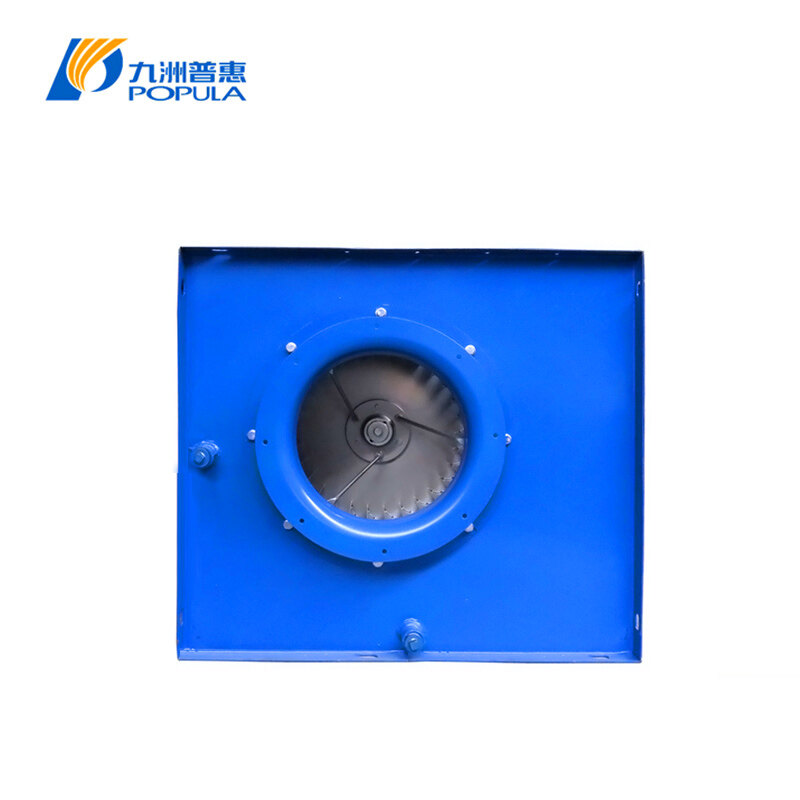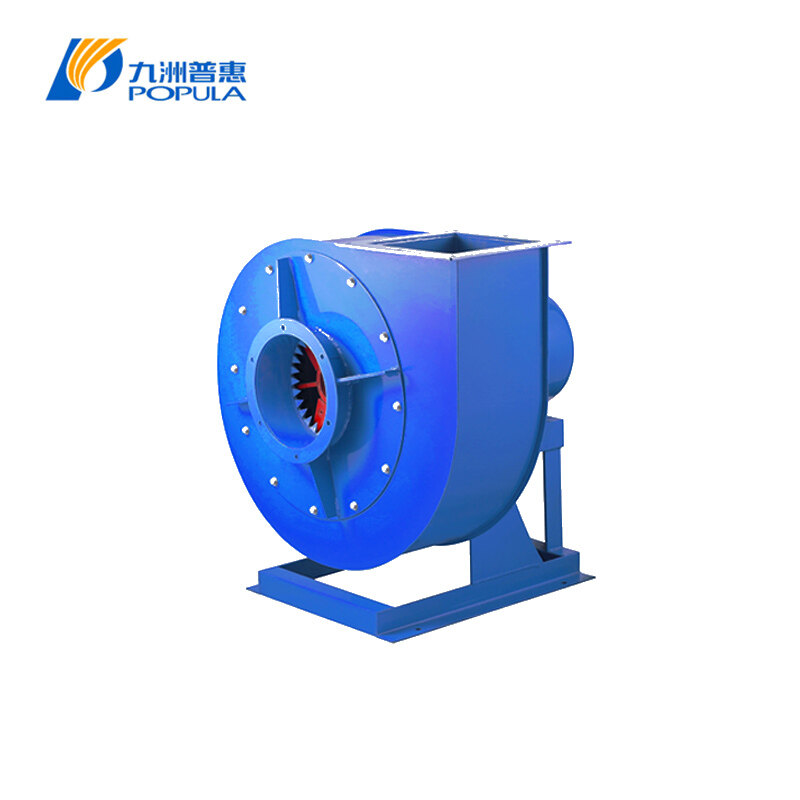A wall mounted axial flow fan, praised for its exceptional ventilation capabilities and space-saving, provides an ideal solution for effective air circulation in different settings. Let's explore the details of this advanced technology further.
What is a wall mounted axial flow fan?
At its core, a wall mounted axial flow fan is a type of fan that utilizes axial airflow principles to move air parallel to the fan's axis. Unlike centrifugal fans that change the direction of airflow, axial flow fans maintain a consistent direction, making them ideal for applications requiring a straight-line airflow pattern. These fans are typically mounted on walls, hence the name, and find extensive use in both industrial and commercial settings.
Importance and applications
The significance of wall mounted axial flow fans lies in their ability to effectively circulate air in confined spaces without occupying valuable floor space. From industrial warehouses to commercial kitchens, these fans play a pivotal role in maintaining optimal indoor air quality, preventing the buildup of heat and pollutants, and promoting a comfortable environment for occupants. Their applications span across various industries, including manufacturing plants, agricultural facilities, data centers, and more.
High-quality Wall Industrial Fan
Components of a wall mounted axial flow fan
Understanding the anatomy of a wall mounted axial flow fan is crucial for appreciating its functionality and performance. The key components include:
Impeller
The impeller, also known as the fan blade, is the heart of the axial flow fan. It consists of a series of curved blades arranged around a central hub. As the impeller rotates, it draws air in and propels it in the desired direction with minimal turbulence. The design and configuration of the impeller directly influence the fan's airflow capacity and efficiency.
Motor
Powering the impeller is the electric motor, which converts electrical energy into mechanical energy to drive the fan blades. The motor's horsepower, speed, and efficiency are critical factors determining the fan's performance and energy consumption. High-quality motors equipped with advanced features ensure reliable operation and longevity.
Housing
The housing of a wall mounted axial flow fan encloses the impeller and motor assembly, providing structural support and directing airflow. It is typically constructed from durable materials such as aluminum or galvanized steel to withstand harsh operating conditions. The housing design influences airflow characteristics, noise levels, and overall fan efficiency.
Mounting bracket
Facilitating secure attachment to walls or other vertical surfaces, the mounting bracket plays a crucial role in the installation and stability of the axial flow fan. It is engineered to withstand the fan's weight and vibrations while ensuring proper alignment for optimal airflow performance. The choice of mounting bracket design depends on factors such as wall construction, space constraints, and installation preferences.
Advantages of wall mounted axial flow fans
Wall mounted axial flow fans offer several advantages over traditional ventilation systems, making them a preferred choice for various applications:
Space-saving design
By mounting directly on walls, these fans eliminate the need for floor space, making them ideal for environments where space is limited or valuable. Their compact footprint allows for strategic placement without obstructing walkways or work areas, maximizing usable space while providing efficient airflow.
Efficient airflow distribution
Utilizing axial airflow principles, these fans deliver a uniform airflow pattern with minimal pressure drop, ensuring consistent ventilation throughout the designated area. Whether used for spot cooling, exhaust ventilation, or air circulation, they excel in maintaining optimal air quality and temperature gradients, improving comfort and productivity.
Easy installation and maintenance
Wall mounted axial flow fans are designed for hassle-free installation and maintenance, reducing downtime and operational costs. With simplified mounting brackets and accessible components, they can be quickly installed by trained technicians without specialized tools or equipment. Routine maintenance tasks, such as cleaning the impeller and lubricating the motor bearings, can be performed efficiently to prolong the fan's lifespan and performance.
Considerations before purchasing a wall mounted axial flow fan
Before investing in a wall mounted axial flow fan, consider the following factors to ensure optimal performance and compatibility with your specific requirements:
Size and capacity
Selecting the appropriate fan size and capacity is essential for achieving the desired airflow rate and ventilation effectiveness. Evaluate factors such as room size, airflow requirements, and environmental conditions to determine the optimal fan size and capacity for your application.
Noise level
While wall mounted axial flow fans are generally quieter than centrifugal fans, noise levels can vary depending on factors such as motor speed, impeller design, and housing construction. Choose fans with low noise ratings to minimize disturbance in noise-sensitive environments such as offices, classrooms, or residential spaces.
Energy efficiency
Opt for energy-efficient wall mounted axial flow fans equipped with high-performance motors and aerodynamically optimized impellers. Look for certified models or fans with variable speed controls to reduce energy consumption and operating costs while maintaining airflow flexibility and control.
Additional features
Consider any additional features or accessories that may enhance the fan's performance or convenience. This includes adjustable louvers for airflow direction control, integrated speed controllers for variable airflow settings, and weatherproofing options for outdoor installations. Evaluate the availability of warranty coverage, technical support, and aftermarket services to ensure long-term satisfaction and peace of mind.
Conclusion
Wall mounted axial flow fans represent a versatile and efficient solution for ventilation and air circulation in various industrial, commercial, and residential settings. With their space-saving design, efficient airflow distribution, and ease of installation, these fans offer a compelling combination of performance, reliability, and convenience. By considering factors such as size, capacity, noise level, energy efficiency, and additional features, you can select the right fan to meet your specific needs and enjoy the benefits of improved indoor air quality and comfort.


